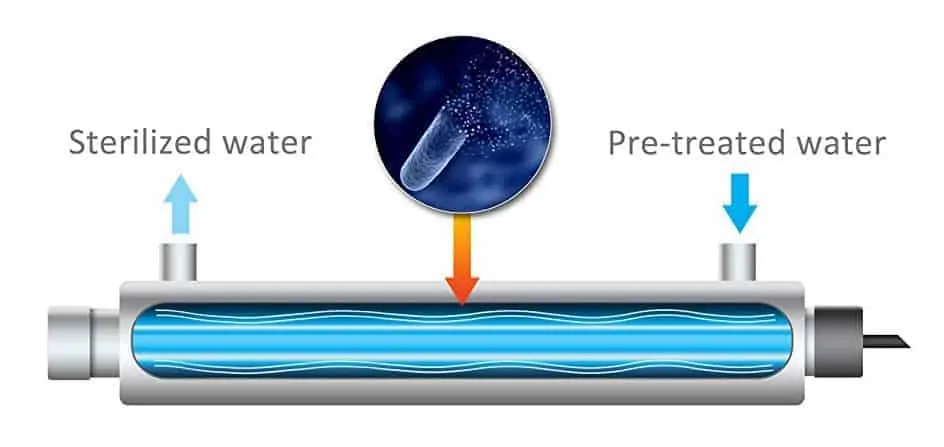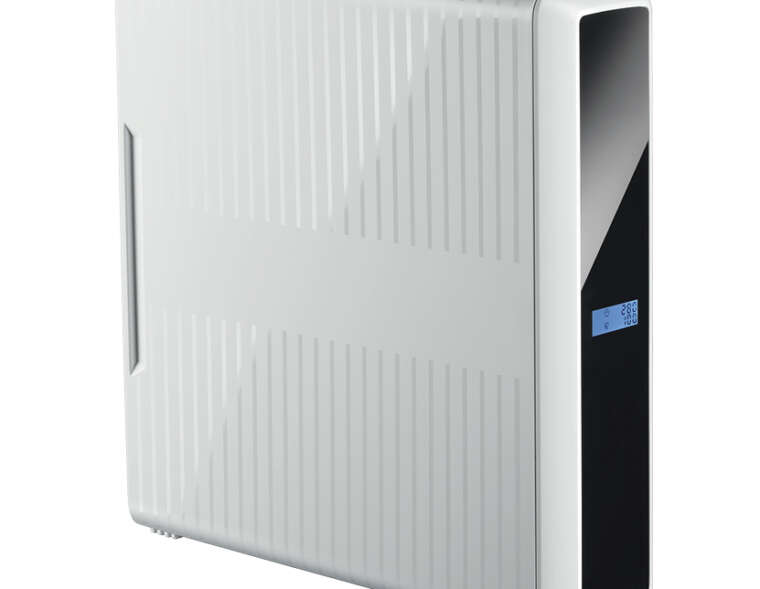When it comes to ensuring safe, clean water for your home or business, two common methods of disinfection stand out: UV disinfection and chemical treatments. Both approaches have their advantages, but understanding how each works and which is best for your specific needs can help you make the right choice. In this post, we’ll explore the key differences between UV disinfection and chemical treatments, and help you decide which method is best for your water.
What is UV Disinfection?
UV disinfection uses ultraviolet light to neutralize harmful microorganisms in water, including bacteria, viruses, and protozoa. By passing water through a UV light chamber, the microorganisms’ DNA is damaged, rendering them unable to reproduce and cause harm. UV disinfection is a chemical-free process that provides an extra layer of protection for both residential and commercial water systems.
Advantages of UV Disinfection:
- Chemical-Free: Unlike chemical treatments, UV disinfection does not add any chemicals to the water, leaving no residual taste or odor.
- Highly Effective: UV disinfection inactivates 99.99% of harmful microorganisms, providing a high level of protection against waterborne pathogens.
- Environmentally Friendly: Because it doesn’t rely on chemicals, UV disinfection is a sustainable, eco-friendly option that doesn’t contribute to water pollution or chemical buildup.
- Low Maintenance: Once installed, UV systems require minimal maintenance, with only periodic lamp replacements to ensure continued effectiveness.
Best for: Homes or businesses that require microbiologically safe water without the need for chemicals, and for applications where taste and environmental impact are concerns.
What are Chemical Treatments?
Chemical treatments involve adding disinfecting agents like chlorine or chloramine to the water supply to kill bacteria, viruses, and other pathogens. These chemicals have been widely used for decades and are effective in both large-scale municipal water systems and smaller, private water supplies.
Advantages of Chemical Treatments:
- Widespread Use: Chemical treatments are the standard for disinfecting municipal water supplies and are effective at killing a wide range of microorganisms.
- Residual Protection: Chemical treatments leave a residual disinfectant in the water, providing ongoing protection as water moves through the distribution system, ensuring water remains safe up to the point of use.
- Cost-Effective for Large-Scale Systems: Chemical disinfection is often the more cost-effective option for large-scale municipal or industrial water treatment applications.
Best for: Large-scale water treatment systems or scenarios where ongoing residual disinfection is required to protect water quality across distribution networks.
Comparing UV Disinfection and Chemical Treatments
Both UV disinfection and chemical treatments are highly effective at killing microorganisms, but their methods, applications, and long-term effects differ significantly. Here’s how they compare:
- Chemical-Free vs. Residual Protection: UV disinfection provides immediate protection without the use of chemicals, making it ideal for homes, businesses, and applications where taste, odor, and environmental impact are concerns. However, UV does not provide residual protection like chemical treatments, which continue to disinfect as water moves through a distribution system.
- Maintenance and Upkeep: UV systems require lamp replacements every 6-12 months but don’t need ongoing chemical monitoring or adjustments. Chemical treatments, on the other hand, require continuous monitoring and dosing to ensure the right levels of disinfectant are maintained.
- Effectiveness: Both methods are highly effective at eliminating harmful microorganisms, but chemical treatments may offer a broader spectrum of pathogen protection. However, UV disinfection is more effective against chlorine-resistant pathogens like cryptosporidium and giardia.
Which is Right for Your Water?
The best disinfection method for your water depends on your specific needs and circumstances. Here are some factors to consider:
- For Residential and Commercial Use: If you need a chemical-free solution that protects against waterborne pathogens without altering the taste or odor of your water, UV disinfection is the ideal choice. It’s also a great option for eco-conscious businesses looking to reduce chemical use in their operations.
- For Large-Scale Systems: If you manage a municipal water system or require ongoing disinfection across large distances or distribution networks, chemical treatments offer the residual protection necessary to keep water safe at every point of use.
- For Specialized Applications: In areas with specific water quality concerns, combining UV disinfection with chemical treatments may offer the best of both worlds, ensuring immediate protection and ongoing safety throughout the water system.
Sovereign Water’s UV Disinfection Solutions
At Sovereign Water, we offer advanced UV disinfection systems designed for both residential and commercial applications. Our UV systems provide chemical-free, highly effective water treatment, ideal for ensuring safe drinking water, food preparation water, and industrial process water. If you’re looking for a sustainable and environmentally friendly way to protect your water supply, UV disinfection is the solution you need.
We can also work with you to determine the best combination of filtration, UV disinfection, and chemical treatments for your specific water quality needs. Whether you’re running a small business, a restaurant, or a large-scale facility, Sovereign Water has the expertise to help you make the right choice.
Contact Us to Learn More
Interested in learning more about UV disinfection or exploring a tailored water treatment solution for your home or business? Contact Sovereign Water today at sales@sovereignwater.co.uk, and let us help you find the right system to ensure safe, clean water for all your needs.



